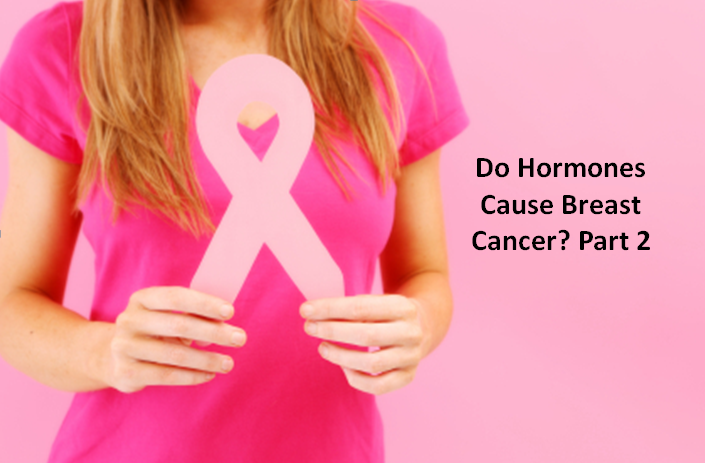 In part 2 of this blog post I reprint with permission David Zava, Ph.D's article entitled Hormones and Breast Cancer: The Latest Findings from WHI.
In part 2 of this blog post I reprint with permission David Zava, Ph.D's article entitled Hormones and Breast Cancer: The Latest Findings from WHI.
In this article Dr Zava clarifies the differences between the chemical hormones and the bio-identical hormones. He shows that real human progesterone does not "have a cancer-promoting effect on breast cancer".
Please open the article links to the medical literature in his article and give copies of these articles to your doctors!
Here is Dr Zava's article:
Hormones and Breast Cancer: The Latest Findings from WHI
by Dr David Zava
I was sent a link to the Today Show, broadcast on October 20th which featured an interview with Dr. Nancy Snyderman, discussing further findings from the Women's Health Initiative Study (WHI), published in the Journal of the American Medical Association (JAMA) this week. This news may confuse your patients and I wanted to take this opportunity to explain the study and assure you this study does not include natural hormones, but refers to the combination of Premarin and Provera.
The experts stated that there is an increase in risk of death from breast cancer when you are taking the combination of estrogen and progestin. In this case, the drugs that were used were Premarin and Provera. Premarin is known as conjugated equine estrogens and is horse estrogen which has some similarities to human estrogen but is not the same. Provera is a progestin known as medroxyprogesterone acetate and is very different in function from natural progesterone.
"Experts" who are saying that synthetic progestins increase breast cancer risk are right, but, we've known that since 2002. Unfortunately, these same "experts" are now claiming an association of natural progesterone with breast cancer by default. They espouse that there is no clinical evidence to show natural progesterone is any safer than synthetic progestins. Unfortunately, this is an incorrect assumption and they have not done their homework. Natural progesterone has a much safer profile than all forms of synthetic progestins, not only for the breasts, but for nearly all tissues of the body, including the reproductive tissues, the cardiovascular systems, and the brain. There is a plethora of published literature on this subject.
For those who are unsure about the striking differences in safety profiles of synthetic progestins versus natural progesterone as regards breast cancer risk, several clinical trials have clearly shown the superiority of natural progesterone.
In a 2005 review of clinical studies comparing synthetic progestins to natural progesterone, Campagnoli and coauthors (J Steriod Biochem Mol Biol 96, 95-108)concluded that: "The balance of the in vivo evidence is that progesterone does not have a cancer-promoting effect on breast tissue. …..We therefore suggest that when HRT is indicated, preparations containing progesterone and not a synthetic progestin should be used, according to a sequential or cyclic-combined regimen. In this way the risk of endometrial cancer is minimized without increasing the risk of BC."
In another 2005 clinical trial comparing synthetic progestins to the natural progesterone, Fournier and coworkers (Int J Cancer 114, 448-454) found that: "The risk was significantly greater than p0.001 with HRT containing synthetic progestins than with HRT containing micronized progesterone, the relative risk being 1.4 and 0.9, respectively." Yes, that's right; progesterone users had a lower risk.
So why are the news media confusing synthetic progestins with natural progesterone? Too often information such as this is streamlined in mainstream media by those who have power, money and the ability to shout through the megaphone the loudest. We know all too often that large pharmaceutical companies have a strangle hold on funding for universities, who gets grants, what gets published, whose opinions get press, the success of women's health organizations and journals they represent. Unfortunately, because of this ability to present one-sided research in such a commanding way, it is not unusual that the news media doesn't spend much time researching the science and the evidence based data and studies that are available; and in this case, available about the difference between progestins and natural progesterone as well as the benefits of natural progesterone.
The decision on natural hormone therapy is one between a patient and physician; you cannot extrapolate what happens in the body using Premarin and Provera to discuss what happens in the body with its own natural hormones. Natural hormones, when properly balanced, allow the body to function at its optimal level.
Thank goodness for women's intuition that senses right from wrong.
Dr Zava's Original Article from his ZRT website





